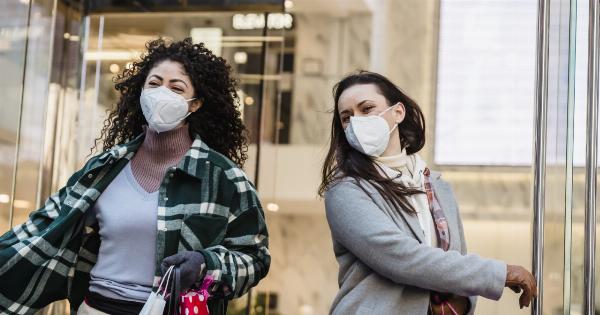Allergies can be a huge pain for anyone who suffers from them. And there are so many types of allergies out there, from pet dander to pollen to certain types of foods.
Depending on the severity of your allergies, they can cause everything from a runny nose and watery eyes to hives and even anaphylaxis.
While there are plenty of medications and treatments available to help alleviate allergy symptoms, there is also another factor that can greatly affect how you feel: your diet.
Believe it or not, what you eat can play a big role in how your body reacts to allergens, and it’s worth taking a closer look at how certain foods can either help or hinder your allergy symptoms.
The Link Between Your Gut and Your Allergies
One of the main ways that your diet affects your allergies has to do with the health of your gut. Your intestines are home to trillions of bacteria that make up what’s called your gut microbiome.
These bacteria play a vital role in your overall health, including your immune system.
It turns out that certain types of bacteria in your gut can help boost your immune system and reduce inflammation, which can in turn lessen the severity of your allergies.
On the other hand, an imbalance in your gut microbiome can lead to inflammation and a weakened immune system, making your allergy symptoms worse.
Foods That Can Help Relieve Allergy Symptoms
If you’re looking to improve your gut health and potentially alleviate your allergy symptoms, there are some foods that can help. These include:.
- Probiotics: These are foods that are rich in “good” bacteria, such as yogurt, kefir, sauerkraut, and kombucha. Consuming these foods regularly can help improve your gut microbiome and boost your immune system.
- Anti-inflammatory foods: Certain foods, such as fatty fish (like salmon), leafy greens, nuts, and berries, have anti-inflammatory properties that can help reduce inflammation throughout your body, including in your airways.
- Quercetin-rich foods: Quercetin is a type of antioxidant that can help block the production of histamine, which is what causes allergy symptoms like sneezing and itching. Foods that are high in quercetin include apples, onions, broccoli, and citrus fruits.
- Vitamin C-rich foods: Vitamin C is an antioxidant that can help reduce inflammation and boost your immune system. Foods that are high in vitamin C include oranges, kiwis, bell peppers, and strawberries.
Foods That Can Make Allergy Symptoms Worse
Of course, just as there are foods that can help alleviate allergy symptoms, there are also foods that can make them worse. Some common culprits include:.
- Dairy: Dairy products, especially milk, can contribute to the production of mucus in your airways, making it harder to breathe and exacerbating allergy symptoms.
- High-sugar foods: Sugar can cause inflammation throughout your body, which can make allergy symptoms worse. Plus, high-sugar foods like candy and soda can be pro-inflammatory and can contribute to an already unbalanced gut microbiome.
- Processed foods: Processed foods tend to be high in additives and preservatives that can contribute to inflammation and an unbalanced gut microbiome. Plus, many processed foods contain high amounts of sugar and unhealthy fats.
- Alcohol and caffeine: Both alcohol and caffeine can dehydrate you, which can in turn worsen allergy symptoms. Plus, alcohol can contribute to inflammation and disrupt your gut microbiome.
Certain Diets Can Help Reduce Allergy Symptoms
In addition to individual foods, certain diets have been shown to help reduce inflammation and improve gut health, which can help alleviate allergy symptoms. Some of these diets include:.
- Mediterranean diet: This diet emphasizes whole foods like fruits, vegetables, whole grains, and healthy fats (like olive oil) and can help reduce inflammation throughout the body.
- Low-FODMAP diet: This diet eliminates certain types of carbohydrates that can contribute to an unbalanced gut microbiome and inflammation. It can be helpful for people with certain types of food sensitivities.
- Elimination diet: This diet involves eliminating certain foods from your diet to see if they are contributing to your allergy symptoms. You may then reintroduce foods one at a time to see if they cause a reaction.
Final Thoughts
If you suffer from allergies, it’s worth taking a closer look at what you’re eating to see if certain foods may be contributing to your symptoms.
While there’s no one-size-fits-all solution, incorporating more gut-healthy, anti-inflammatory foods into your diet may help alleviate your allergies. Likewise, avoiding foods that can exacerbate inflammation and disrupt your gut microbiome can also make a big difference.






























